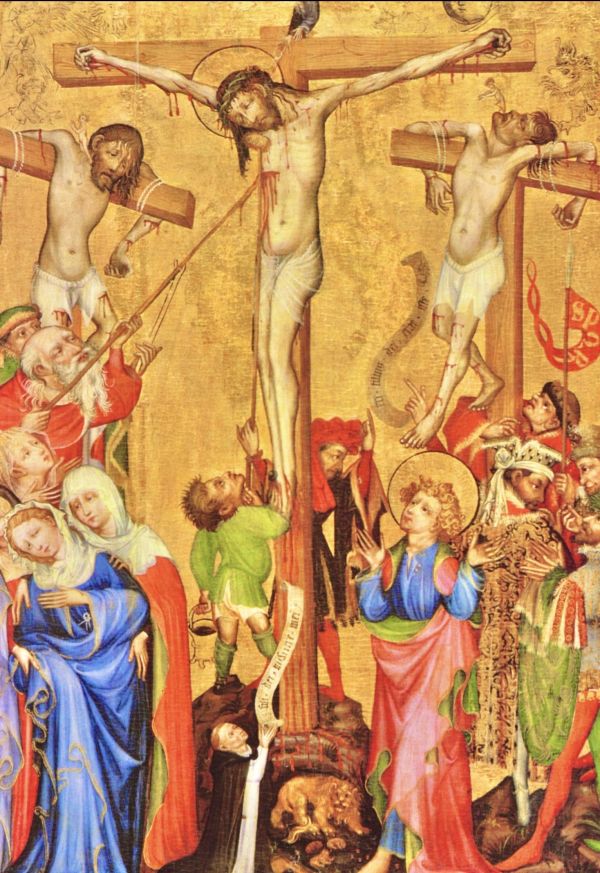(Lk 23:35-43)
The Son is crucified among criminals. For political and religious power, he was a much worse danger.
According to Lk, only one outraged him; the other called Jesus by name and relied on him (v.42).
At the beginning of the Gospel the coming of the Lord is placed among the least of the earth.
He manifests himself to the world among impure and despised people [even certain that they must be incinerated of the Judge Messiah, and who therefore were afraid of him] not among the righteous and saints of the Temple.
Then his whole life takes place in the midst of tax collectors and sinners, because he came for them.
In fact: who brings back to the Father’s house? A guy any, representing all of us - a criminal who had committed murders - because all sins consist in taking away someone’s life and joy of living.
So that killer represents us. And Christ begins to build Family precisely with the criminal next door, who are we: sinners recovered from his unconditional Love.
In Lk the crowd is in disarray.
People do not insult the Faithful Son accused by religious authorities, but remain perplexed, they do not understand.
The people did not have healthy spiritual guides, capable of making the authentic features of God’s world be recognized - and vice versa, what made it caricature.
That of “universal King” is a title that today carries with it many misunderstandings - when attributed to the authentic Christ, reduced to zero.
This is because it’s confused with artificial magnitudes, magnificences of exteriority.
The regality of believers in Him is inapparent, all substance. Power that opens up new possibilities, even in dark dimension.
Nothing to do with the temptations to realize oneself by thinking in a trivial, hasty, outwardly, comfortable way, and promoting only oneself (vv.37.39).
In the Gospels - in fact - evil is presented not as a bad opponent and antagonist, but affable and complacent counselor, who seems to convey security from the unexpected, and make us win positions.
Friend who loves and protects us, so he gives the tips to stand up, impose, succeed.
But focussing on appearances ends up making us ignore and not understand the deep paths of the soul.
At the word «kingdom», Pilate immediately thought that of Tiberius (vv.2-4)
Here the size of the Kingdom is upside down: it doesn’t show the muscles.
His King stands us by, he is a Person able to create harmony of beauty within; a quieter road.
Salvation comes from what in our life is considered as bland and nothingness, yet it opens wide the infinite that dwells inside - the boundless of the primordial, present and final Friend.
He reverberates in the heart, and directs - Eternal who intimately resonates, even in tragic situations.
This comes even from those who - Jesus, benevolent oppressed - was valued a cursed by God and considered scum of society à la page.
Conversely, friendly Presence; wich makes us "see" and unlocks.
The radical difference between religiosity and Faith? The sense of an intimate and surprising Mystery that awakens us.
Wine, not «vinegar» [sour wine (v.36)]: corruption of love and of the celebration.
The God of religions drives out the contradictory and inadequate woman and man from Paradise. The Father welcomes them.
[34th Sunday in O.T. (year C), November 23, 2025, Christ the King]












